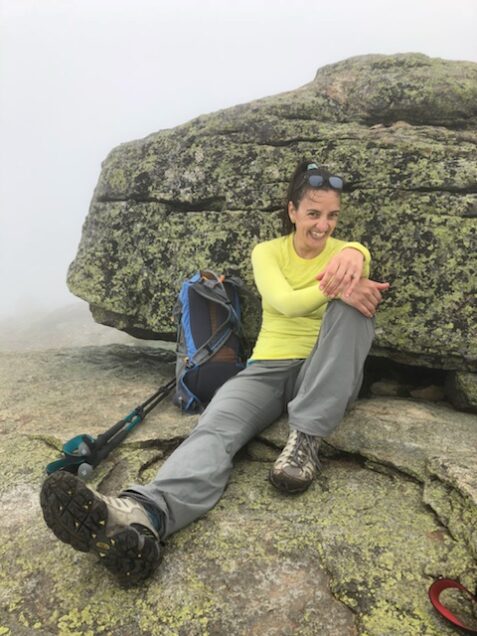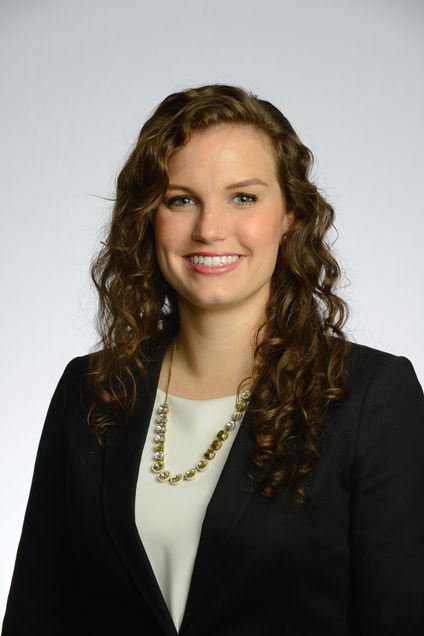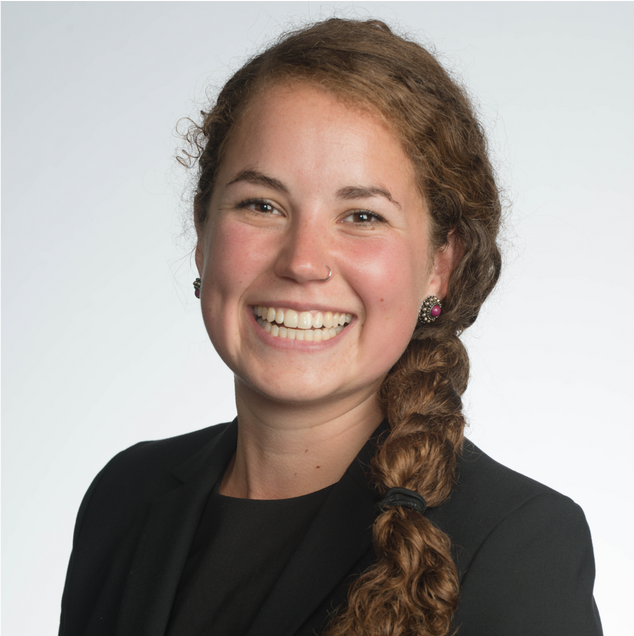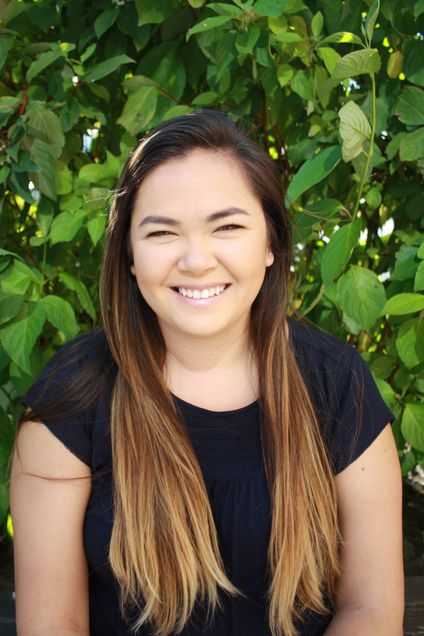Making Your MBA Electives Work for You
Author: Shreya Iyer
Congrats—you’ve made it through your Orientation and LAUNCH week. Now, you are sitting in your Mod 1 classes juggling between Economics, Accounting, and Statistics, and may be wondering, ‘what have I gotten myself into?’.
As someone who was going through this process not too long ago, I can empathize with the anxiety of picking the right concentration and electives. One of the biggest learnings entering into an MBA program is to actually un-learn some best practices from your Undergraduate years. This is especially true as you’re picking your Mod/Elective classes.
At Questrom, full-time first year is structured in four modules (Mods), with each lasting roughly seven weeks. Mod 1 focuses on building a strong foundation and understanding core business of Economics, Accounting, and Statistics. Mod 2 introduces you to business functions—marketing, finance, and operations. Module 3 takes a broader perspective, with courses in Strategy, Organizational Leadership, and Information Technology. All Mods have hands-on experiential learning components to them. Finally, in Mod 4, you can delve into your interests and choose courses that fit your concentration and career goals. I took Health Sector Issues and Opportunities, Analytics for Managers, and a Global Immersion Trip (Israel) as my Mod 4 electives.
Your MBA elective courses are designed and built on the learnings established from your Mod courses. Electives are meant to serve your needs—giving you complete freedom to take an easy or challenging course depending on your goals. They even allow you to explore a subject area you’re curious about, because, why not!
Here are some tips to help you think through your electives:
1. Take a global immersion course: I highly recommend taking a global immersion trip if it fits your needs and schedule. These are 3-credit courses that count towards the Mod 4 or second year schedule. I went on the Israel trip because I was interested in learning about the innovation ecosystem and global entrepreneurship. Because of the format of these courses (1 week of travel + few weekend classes), doing an immersion course allowed me to have a lighter workload for Mod 4—which is especially helpful if you are internship/job searching in the Spring.
2. Take classes from other schools: Questrom offers some amazing courses; however, if you find a course offered at another school within Boston University (say, within the School of Engineering or Communications, etc), you may be eligible to take that course and count it towards your Questrom credits.Talk to your academic advisor for more information on this.
3. Take classes that challenge you: Business School is the perfect time to get out of your comfort zone and dabble in unique subjects that pique your interest. For example, I took Corporate Finance even though I had very limited knowledge in that subject. I spoke with the professor beforehand about my limited exposure to Finance, and he was very accommodating. Remember, this is your opportunity to stretch your learning, so spread wide!
4. Take advantage of the add/drop period: the first week of classes is your chance to evaluate the course, professor, and topics being covered—take advantage of this time. Try to sit in on courses you are interested in and assess whether the course load and curriculum is conducive to your needs.
5. Take intensives: intensives are usually a week-long course offered during the beginning of Fall or Spring semester. Questrom also offers 1.5 credit Saturday courses. You can free up your core semester by finishing 3-credits in the beginning.
Bonus: as an HSM-student, I would highly recommend connecting with Ned Rimer to discuss which courses may be right for your career interests. Personally, I have taken Drugs, Devices and Diagnostics (Triple D), Health Economics, and Health Innovation--highly recommend these courses.
Good luck!
Shreya Iyer is an MBA & HSM Candidate 2020. She is the president of the Marketing Club at Questrom. Shreya will be joining the pharmaceutical/bio-tech industry post-graduation.

Balancing the MBA Life
I think writing about work-life balance in a business school blog can feel like a little bit of an oxymoron: MBA’s are ambitious, motivated, driven, and balance can be challenging to strike. It can be particularly hard when trying to cram academics, networking, internship search, new friends, and a whole bunch of extracurricular activities into 24 hours. Oh, and I suppose one should also try and get some sleep occasionally.
I think what I learned quickly in my first year was that my time was the most limited and precious resource I had, and I’d be smart to put it towards the things that mattered most. This for me meant learning to prioritize. There are always several interesting things going on at the same time: a networking event, an employer spotlight, a TA session, friends meeting up for drinks. Having to choose just one is challenging, but with so many asks on my time, I often have to ask myself, whether my choice would help me grow, make me happier, align with my values, or help me reach my goals. The answer isn’t always the same: sometimes it is foregoing the party to study for an exam, and sometimes it is going out to celebrate and relishing the accomplishment of an aced interview. That’s why this balance thing is tricky.
Another thing on my journey towards balance has been making self-care a regular part of my life because I need to show up as my best self for my teams and to stay sharp to tackle challenging projects. What this looks like for me is always aiming for 8 hours of sleep. Sometimes that means finishing homework assignments at 5 am. But I know I’d be more productive then than at the end of an already long, demanding day. Self-care for me also means regular exercise: I know I have more energy if I start my day with a run. I did Crossfit during my first year and have taken up aerial hoop in second year. I think sleep and exercise are also what has kept me healthier both physically and mentally through my MBA career.
I think recognizing my limitations and setting realistic expectations have also been critical in working to achieve balance in in my life. This applies to anything, from committing to realistic timelines when I promise to do research on a project, not taking on a club task that I don’t think I can complete on time, and making sure my partner knows whether I am able to pick up groceries on my way home. This is probably the most challenging part of creating balance for me, as my natural propensity is to say yes to everything. But I’ve learned that I’d rather under promise and overdeliver than to have to choose between sleep and integrity of delivering on a word given thoughtlessly.
In short, creating a work-life balance as an MBA student is challenging. But balance is, by definition, the counteraction of weights or tensions, so it’s only natural that you get particularly good at finding it when you feel pulled in different directions.
Nari Malkhasyan is a 2nd year Social Impact MBA student with a background in the apparel industry, and a passion for the outdoors, aerial circus, kombucha, and her 2 cats. She's trying to hike her way through the Presidential Range in NH before she moves to the West Coast after graduation.
Moving to Boston
Many of the Questrom MBA students move from many cities in the United States and abroad. This article will provide some insight on the common concerns MBA students have when moving to Boston and some advice to keep in mind when making the big move!
Common concerns from the MBA students who are new to Boston are related to housing, winter weather, and adjusting to the city.
- Housing
Figuring out where to move, how, and when is always one of the most difficult decisions. The great thing about Boston is the public transportation available which gives students a range of neighborhoods to target their housing research.
Most of the Questrom MBA students live off campus. There are some Boston University rental options through Boston University Real Estate but there are few and off campus options tend to be more affordable. Keep in mind, most leases start on September 1st. The important thing for students when looking for housing is the commute. Most MBA students recommend living near the B, C or D lines since they stop at Kenmore Station, which is a 4-minute walk from the Questrom School of Business. The neighborhoods students recommend looking at when searching are Brookline, Allston, Kenmore/Fenway, and Back Bay.
For more information on Boston University Real Estate, click here.
- Winter weather
The winter months are rough for many students who are not used to the cold weather, but with a good winter coat and a pair of snow boots you will be braving the cold like any Bostonian! Speaking to your fellow classmates and second years on what is the best gear to buy for the winter months is always a great way to get prepared. It is also important to have a good support system that will get you through the cold months.
Here is a list of the winter essentials to brave a Boston winter:
- Warm parka: A down-filled waterproof parka is a must have in the winter months to keep you warm.
- Snow boots: Snow boots might not be the most fashionable item in your closet but believe me you will love them after your first snow. The boots keep your feet warm and dry. They are essential for freezing rain, snowstorms, and wind chills.
- Wool beanie, socks, and scarf: Wool is a great fabric to keep you warm on the winter months. A beanie and scarf will be necessary when your entire body is warm, but your neck and head are freezing. Your regular cotton socks will not be enough in the cold weather so make sure you stock up on wool socks before the first snowstorm hits.
- Tech-friendly gloves: Tech friendly gloves are key for the winter. They not only look professional, but they are also practical since you will not have to take your gloves off to text someone.
- Wool Coat: The wools coat is a great alternative for the parka. The parka is usually best for inclement weather, but the wool coat is best suited for the nicer winter days. It is also more stylish and professional so it will come in handy for those networking events and interviews.
- Layers!!!: The key to staying warm in the winter is layers. Make sure you stock up on sweaters, shirts, undershirts, and long underwear or leggings to keep you warm in the colder days.
- Adjusting to the city
The city of Boston has many attractions that make it desirable for students and tourists to come and enjoy all it has to offer. From its many museums to its larger than life sports scene, Boston has many cultural activities to emerge yourself in. However, since Boston is the center of academia there is a big student population and therefore great diversity.
MBA students shared some of their favorite things to do in the city:
- Running outdoors: Boston has many parks where you can run and enjoy nature. The Charles River Esplanade is one of the most popular ones among Bostonians with views of the Charles River along the way.
- Rock Climbing: Some of the MBAs enjoy rock climbing in the city. Outside of the city there are a few outdoor parks available for rock climbing, but many of the students enjoy indoor rock climbing due to the weather. Brooklyn Boulders in Somerville is a popular rock-climbing gym. If you are new to rock climbing, the Boston University gym, FitRec, has rock climbing lessons and open hours to use the indoor rock-climbing wall.
- Sports: Boston is known for being very proud of its sports’ teams. Don’t miss a Red Sox game at Fenway Stadium or a Celtics game at the TD Garden.
- Music: Many artists come to Boston to play in one of the many theaters including the Agganis Arena right on campus. If you are looking for a less expensive and more intimate way to experience music in Boston, check out Sofar Sounds Boston to hear local artists play in secret locations.
We hope we have convinced you that you can also survive Boston winters and the many challenges of moving to a new city! If you have any questions about your move to Boston, please email connect@bu.edu.
Experiential Learning Opportunities
Experiential learning is one of the greatest parts about the Questrom experience! Throughout your two years there are a multitude of ways to get involved where you can apply your business knowledge and flex your management skills. Opportunities are available both formally, in classes and conferences, or more informally through global consulting projects over Spring Break. I’ve taken part in experiential learning through four different outlets: 1) class projects, 2) BU Global Ventures Consulting Club, 3) Health & Life Sciences Conference, and 4) case competitions.
1. Class Projects
There are many opportunities through class to work with companies! In Health Sector Marketing, we worked with a company to analyze their marketing plan and then delivered recommendations to improve it. My team worked with a local biotech company from the Harvard Innovation incubator that is addressing drug adherence issues. We met with the Business Development lead and his team, and came up with a marketing roadmap for their new product launch. As a team we presented to the board and were proud to hear that most of our recommendations were put into practice!
2. BU Global Ventures Consulting Club
BU Global Ventures is a student led club that runs a Spring Break trip to Guatemala (first year) or Peru (second year), where you consult with local entrepreneurs while also enjoying some fun travel with classmates. This year for spring break I went to Peru!--what an adventure!! After exploring Lima we each met with our local company. I presented (in Spanish-- big win for all those high school Spanish classes!) and we delivered a Powerpoint deck on branding best-practices for the whole entrepreneurial community, as well as specific recommendations for our local company. The audience was so engaging and both excited and grateful for our help!
The trip is very rewarding. It’s wonderful to know I’ve put into practice the Questrom creed of “creating value for the world”, and it was encouraging to witness the courage and zeal of these local entrepreneurs leading their enterprises in challenging economic situations.
3. Health & Life Sciences Conference
Conferences are another fantastic way to exercise your leadership and management skills while networking with local companies and business leaders. The Health & Life Sciences Conference is Questrom’s largest student-led conference and attracts not only Boston-based thought leaders but also some of the nation’s biggest names. As a first year, I applied and was selected, to be the Assistant for Digital Media & Content. As a second year, I was the Director of Digital Media & Content. It was an incredible experience to work cross-functionally behind the scenes with classmates, through all the logistics and organization, and get a sense of what it takes to put on such an event. In my opinion, the best part was getting to see it all come together on conference day! It was a huge success, with over 200+ attendees from across Boston!
4. Case Competitions
Case competitions are a unique business school opportunity to compete, work in teams and be analytical! You’re given a case by a company or organization and have a given amount of time (sometimes it’s 2 months, a week, or even just 24 hours!) to analyze a case, create recommendations and give a presentation. I attended the Ohio State University case competition with two classmates, where we were tasked with expanding their diabetes program and making it a center of national excellence. We flew to Columbus, Ohio where we got to network and compete with schools from all over the country! The chance to apply my course skills to a real-world problem was thrilling, and taught me not only to think strategically but also critically analyze the viability of a solution. It’s fun to shoot for the moon, but you must also consider if you can and should actually do it? The whole experience was a fantastic way to work with friends, apply business logic, and refine my presentation skills, all while proudly representing Questrom at a national forum!
All these amazing experiences have strengthened my business acumen. However, there are even more ways to partake in experiential learning opportunities at Questrom. Link Day (a day of consulting for local non-profits), professor initiated projects (some professors have launched ad hoc trips/projects through personal corporate contacts), case writing (BU professors collaborate with students to write new case materials), MassChallenge (a start-up incubator where students are paired with a company), and Global Immersion Trips (school led treks over breaks to various countries to meet and work with international firms) are a few that stand out. The possibilities really are endless!!

Natassya Bedos is a Second Year Health Sector MBA student at the Questrom School of Business
Dual Degree Programs at Questrom
Are you considering a dual degree program at Questrom? Many of our students do! Learn more about the experience from three students in different dual degree programs.
Masters in Digital Innovation (MSDi)
Emily Rackleff
Social Impact MBA + MSDi

Highlights: As someone coming from a nontechnical background, the MSDi degree has added credibility and expertise to my career story and helped me pivot into my target role doing technology consulting for nonprofits. Employers and people outside of Questrom are curious about the MSDi and it has sparked conversations and opened doors I might not otherwise have had. Graduating with the MSDi, I feel much more equipped to manage the technical aspects of a client engagement and know that I can lead a project to make sure both business and implementation needs are fully met.
Challenges: There is so much to learn in such a short period! I wish there had been more time to absorb some of the key information, and there are concepts, like user experience, that I wish we had been able to go deeper on. That said, I do appreciate that I will graduate in two years with two degrees.
Tips for future students: While it is not a requirement, I wish I had done some more prep work to learn the R and python languages. The program isn’t designed to make you fluent in any one language--you’re not going to graduate and become a software engineer--but I do think I would have been able to engage more fully with some of the exercises and projects if I had a basic working knowledge in advance.
Masters in Public Health (MPH)
Jillian Yee
Health Sector Management MBA + MPH

Highlights: For someone interested in the healthcare space, this is such an interesting and applicable combination of degrees. I have really enjoyed my courses for both programs- they often approach the topic of health and care in different perspectives from one another as we dive into questions concerning the cost, quality, and access of care delivery. The way the program is structured, you have a lot of flexibility with your concentration for the MPH. My class of dual MBA/MPH’ers has nine second year students and we span across five different concentrations depending on our individual interests. Aside from the course content, I also love being part of so many different communities. In addition to my dual community, I also have the HSM community, the broader MBA community and the MPH community as well. We have so many amazing people here at Questrom, it has been a fantastic experience getting to know them in so many different capacities.
Challenges: It’s a lot of content to condense into two years. The advisors to the two programs have worked very hard to try to cut overlap between the core classes to give us as much freedom with our classes as possible. That being said, you do have to be fairly selective and definitely plan ahead with your course schedule because there will be a lot that you will want to fit in, and unfortunately probably more than you will have time for.
Tips for future students/something you wish you knew: Communication between the two components of the degrees can be a bit of a struggle sometimes. The dual MBA/MPH class a year above mine was wonderful and took a lot of time to help us navigate the transition- from classes and instructors to good places to study on the Medical Campus. As the current second years, my class has tried to pass on the same legacy to the current first year duals. The second years when you start will be your greatest resource; get to know them and ask them as many questions as you can think of.
